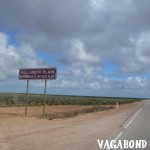Mindset of Crunching Numbers
Probably the number one question we get asked is, “How do you afford it?”, followed by, “How do you live that nomadic lifestyle?”, stated by the belief that,”Travelling is so expensive.”
Yes- travelling is expensive if you follow the exact advice from the guidebooks, tour shops and travel agents. With a little bit of detective work, thriftiness and creativity, there are a lot of ways to curb the cost of travelling.
As a team, Chris and I have deemed travel as our ultimate goal. Everything we do either helps or hinders us in achieving that goal. That’s not to say we don’t have other goals that require money to accomplish. We do. Cooking, gear upgrades, buying a good book, relaxing- but it’s all under the umbrella of our main objective: to live on all seven continents and explore the world.
For us it’s not so much the making of money that propels us along this lifestyle as much as creative ways of making our money last longer. A huge part of stretching that money is our mindset. With every purchase we ask ourselves three things:
1.) Is it necessary? (Do we need this or want this? Want items can be great incentives to save for.)
2.) Is there good value? (How long, how much will I use this product?)
3.) Is it ethical? (Is it fair trade, local made, not tested on animals?)
We aim to choose the product that is the best of all three. It doesn’t happen every single time with every single product and sometimes it’s just impossible due to geographical location for example. We don’t throw the towel in and get discouraged when these objectives can’t be achieved every time, we just look for the next available chance to spend the majority of our purchasing dollars in situations we believe will have the highest payback.
Here’s some insight showcasing just a few examples of how our mindset works in achieving our goal of travelling more. If you want to keep achieving your own goals, one of our visualizations is to think like a snowball. A big snowball.
You know- a big white thing barrelling down a hill gaining in both momentum and size as it rolls. Once you start positive habits in the direction you want to propel yourself, the momentum will keep building if you keep fuelling it. Don’t worry about the smaller chunks that fly off as your snowball rolls down the hill. Just keep the momentum rolling and the next thing you know, you’ll get massive results.
Tiff cutting both our hair:
Figure: one hair cut every three months @ $15 per person
That’s $30 every three months for two people
Four hair cuts in 12 months = $120 savings
Hang Dry Laundry:
Figure: Average of one load per week @$4 per dry
4 dryer loads X 1 month= $16
$16 X 12 months= $192 savings
Taking advantage of sun to do a major clean of van.
no sore nose with my hankie! Nice and soft.

but all they saw was a life shattering event.
This is a great coffee cup and arrived safe and sound, duct tape in tact, back in the USA. It is still in use today bringing to mind fond travel memories whenever I raise it to my lips.
After admiring him we put him back in his home.
With just these six examples the monetary savings is over $624 in one year. The above is just a very small snippet of habits we have engrained into our lifestyle.
Thinking back to when we started our goal of travelling, we didn’t know what we were doing or where it would take us. We looked out to a field with thousands of snowflakes, grabbed some and simply made the commitment to start rolling. It is up to each of us to retain what helps us achieve our individual goals and keep the momentum of our own massive snowballs rolling. Let the things that hold you back go flying off as we each launch our way towards personal success.









 Previous Post
Previous Post Next Post
Next Post
…nice fish, nice hankies, nice friends, nice ideas…
nice-nice, nice comment 🙂
We save money by having my sister and husband come to live with us and call them our foster children. It may not be so much a money saver as it is a really great way to have fantastic home cooked meals without cooking! 🙂
barting in action…:)